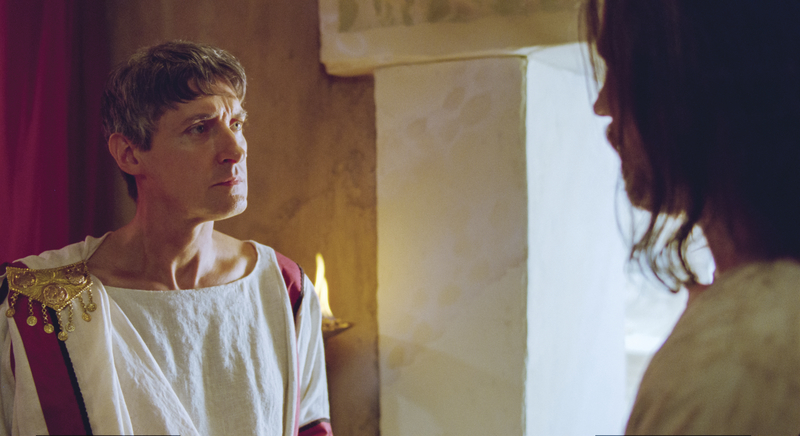I recently watched a video where science nerd Kyle Hill responded to the various social media conspiracies that have been popping up about the "fake snow" in Texas. Although I expected him to call them silly, foolish, or something worse, I was surprised when he instead talked about a more serious topic he calls the “information apocalypse.” Beyond being a good example of avoiding name-calling, it was an interesting discussion about information, truth, and our responsibilities as citizens of the world (13:00-17:20).
We are indeed living in a time where there is so much information available, it can be hard to tell what is true and what isn’t. Some, like Pontius Pilate, may believe that it is not possible to determine the truth. He expressed this, perhaps cynically, perhaps dejectedly, when he asked Jesus, “What is truth?” (John 18:38). Others may believe that there is no truth that applies to everyone.
I believe that there are some facts which are always true. These will sometimes be referred to as absolute truths, or eternal truths by religious persons. There are many different perspectives and opinions about absolute truth that pervade society, and I will attempt to not attack any of these; rather I will assert my own beliefs and show why and how I believe them to be correct.
First, let’s address Pilate’s question: what is truth? Webster gives the definition as “the property (as of a statement) of being in accord with fact or reality.” So when I say that a statement is “true,” that means it accurately describes the facts or nature of reality. How does one come to know or understand truths? That can be a little more difficult.
I also want to differentiate between facts and opinions. Everyone has beliefs which influence their actions. I’m not speaking of religious beliefs, but of beliefs that certain actions have predictable outcomes (see Lectures on Faith 1:10). For example, would you eat food if you did not believe that it would satisfy your hunger? Would I go to work if I did not believe I would get paid? Some of these beliefs are based on fundamental truths, such as the belief that walking will get me somewhere - this depends on gravity and friction. Others are based on opinions, such as the belief that I can write something nice for my blog - this depends on my writing skill, which is not a fundamental truth.
Is it possible for absolute truths to exist? My dad has a shirt that says "This statement is false." Some people who argue against absolute truth will say things like "truth is relative" - this assertion means that the statement itself that "truth is relative" is sometimes true and sometimes not. This also implies that absolute truth sometimes exists and sometimes doesn't, which is a contradiction. Another argument, used by Korihor and others of the order of Nehor in the Book of Mormon, try to argue that "no man can know of anything which is to come," (Alma 30:13) specifically referring to the prophecies of Christ. Korihor is asking Alma to accept his own assertion that some things are unknowable as truth, while rejecting his own belief in what is true. Can you see the contradiction in these arguments? You cannot logically argue against absolute truth, because to argue against something is to establish that a truth exists.
As a humorous example of what would happen if everyone
could pick their own truth, I'll call up an example from my childhood:
Calvin and Hobbes. A few times there would be a longer comic strip
where the titular characters played Calvinball, a sport where the only
rule is that you can't make up the same rule twice. Since I can't
include the comic itself in this blog post for copyright reasons, please
enjoy my favorite one here. And here's a list of all of the relevant comics. Incidentally, this comic strip was named after John Calvin, a famous theologian, and Thomas Hobbes, a famous philosopher.
In addition to this proof by contradiction, I once read some of the writings of René Descartes, a philosopher and mathematician from the 1600s. His Meditations on First Philosophy was one of the first works we studied in a philosophy class I took a few years ago. Although I don’t necessarily recommend reading the whole thing just for this blog post, I would recommend reading the Wikipedia summary.
Now of course I don't base my belief in God and other absolute truths just on the writings of some 400 year old mathematician, or other purely logical reasons. These arguments have helped confirm what I have felt is true by the whisperings of the Holy Ghost. As it is written, the Holy Ghost has the power to "teach you all things" spiritual (John 14:26). These cannot be deeply known using only mortal means. God is willing to make known the truths of eternity to anyone who is sincerely seeking.
I hope we all can more deeply appreciate the stability that absolute truth provides in our lives. And I also hope that the specific absolute truth of the existence of God will help provide some comfort to help cope with the challenges of life.

Comments
Post a Comment